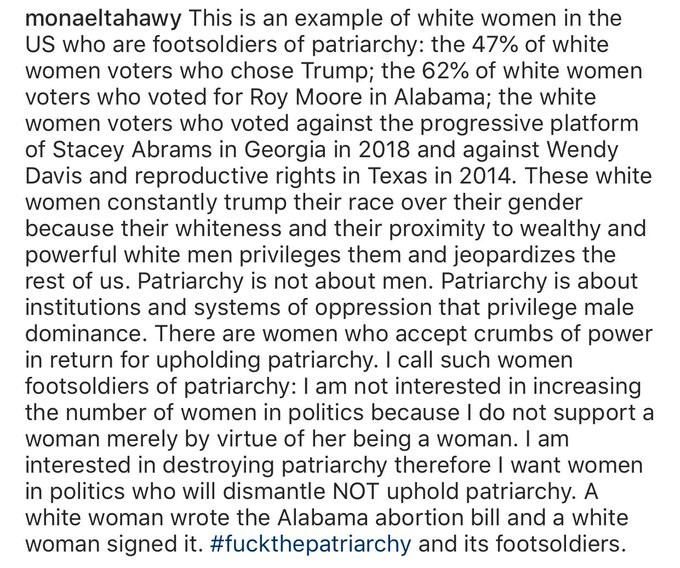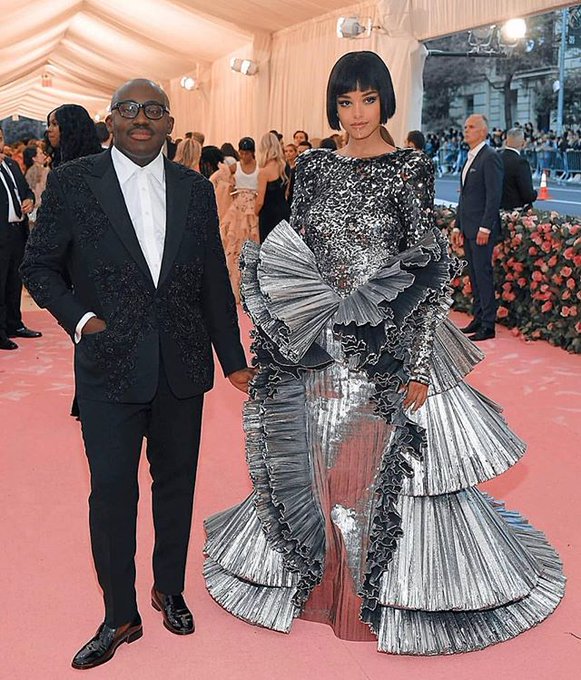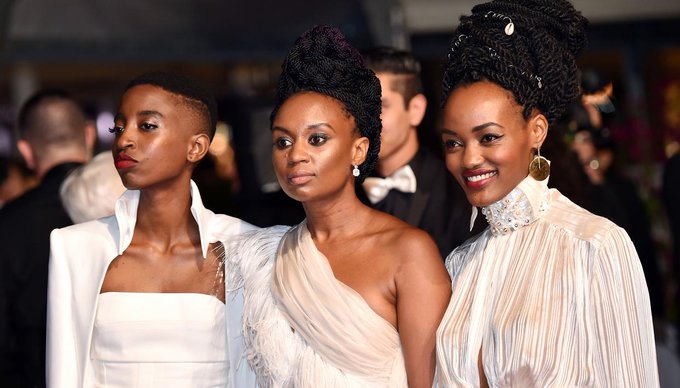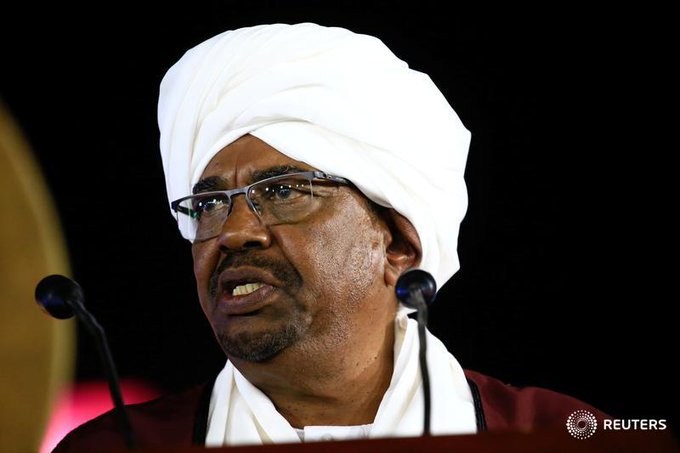The Africa Report for the midyear 2019 has revealed the list of the 100 most influential Africans.
The Africa Report’s top 10 Africans who control the levers of power across politics, business and the arts: from billionaire barons to unpredictable peacemakers and soft-power superstars.
1 – Aliko Dangote
Money talks
Nigeria
He’s the richest black man in the world and Africa’s richest man, with an estimated wealth of $10.3bn. Within Nigeria, Senator Ben-Murray Bruce called him “more influential and powerful than (President Muhammadu) Buhari”. The billionaire’s latest project is a $10.5bn oil refinery that will be Africa’s largest, so Dangote will not be sitting on the sidelines when it comes to oil-sector reform debates there. He is investing in the continent’s manufacturing and agribusiness capacity, and plans to launch the long-awaited London IPO of Dangote Cement in late 2019. Meanwhile, his philanthropy is taking flight.
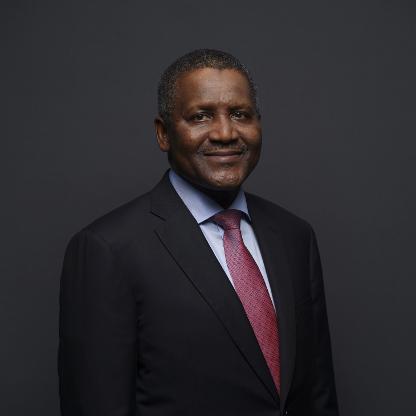
2 – Elon Musk
Rocket man
South Africa
The yo-yoing of his company shares, his hirings and firings and off-the-wall tweets keep Musk in the headlines. He may be a maverick but his ideas are shaping the future, from reducing global warming with his electric cars to urban transportation on a cushion of air and plans to establish a colony on Mars. His Boring Company could help a boom in urban public transportation, and he is a big pessimist about the impact of AI. He donates to both the Democratic and Republican parties in the US, saying it is necessary to pay up in order to have a voice.
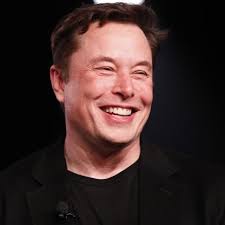
Go-getter in Asia
South Africa
When China-based Tencent sneezed in August 2018, Naspers share price caught a cold. It didn’t last long, but it showed how tied the fortunes of the South African media and entertainment behemoth are to its largest holding (Naspers owns 31% of the Chinese internet giant). Buying a stake in Tencent in 2001 makes Bekker the Buffett of Africa: the initial $32m investment has grown to $116bn since then, and Bekker famously waived a salary to get paid in stock options when he was CEO. With the bulk of South African pension funds invested heavily in Naspers and allegations of Gupta-style influencing in a 2017 broadcasting deal, Bekker said the company would work on its transparency at the 2018 annual general meeting.
The sun keeps rising
Nigeria
The Nigerian author-cum-public intellectual continues her stratospheric ascent and is as often seen behind a mic as in print these days – engaging audiences about racism, sexism and the human condition. She started the year 2018 slaying a French journalist for her lack of knowledge about Nigeria and ended it on stage with former US first lady Michelle Obama. Who’s next?
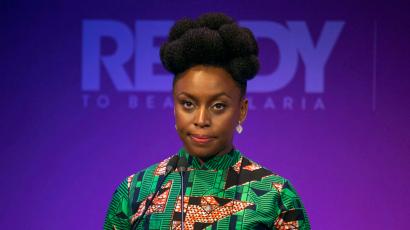
5 – Trevor Noah
Mic wrecker
South Africa
One of the US’s most prominent voices critiquing the presidency of Donald Trump, Noah has brought millennial-inspired thinking and an astute outsider’s view to The Daily Show and taught some Americans that Africa is not a country. With the renewal of his contract in 2017 his job is secure until 2022, which will carry him through the febrile US election season. He is also quite funny.
6 – Tidjane Thiam
Master strategist
Côte d’Ivoire
Thiam’s turnaround of Credit Suisse since 2016 has left bankers and analysts awestruck. Ignoring naysayers, the Ivorian CEO relegated the derivatives traders and recast the bank as a wealth-management operation focusing on emerging markets. He explained his view to Euromoney: “This is a fabulous bank. Or let me be more precise: it has always had a fabulous bank within it.” But it faces big blowback for its role in the Mozambique tuna bond scandal.
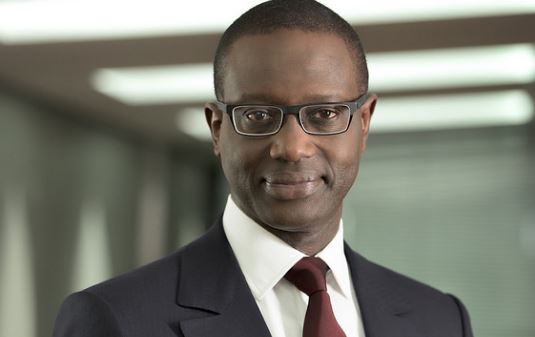
7 – Davido
Naija pop idol
Nigeria
He has riches (he’s worth $16m), good looks, fast cars and political clout. Using his music to inspire Nigerians to vote in the 2019 elections, he also lent his star appeal to presidential candidate Atiku Abubakar’s campaign, seriously upstaging the 72-year-old politician. His next act will be to crack the tough US market, with his eyes set on a gig at Madison Square Garden, having filled the 15,000-seat O2 Arena in London in January.

8 – Enoch Adeboye
Sacred networker
Nigeria
In 2017 Pastor Adeboye’s resignation from leading his five-million-member church in Nigeria was greeted with dismay by congregations around the country. Nigeria’s highest-profile pastor, who numbers the Nigerian vice-president Yemi Osinbajo among his followers, had to step down from running the domestic operations of the church he had built up almost from scratch after a new law put a 20-year cap and 70-year-old age limit on the leadership of non-profit organisations. Adeboye could have argued that The Redeemed Christian Church of God was not, strictly speaking, “non-profit”, with Forbes quoting the net worth of the man born into poverty at €39m, but he chose not to.
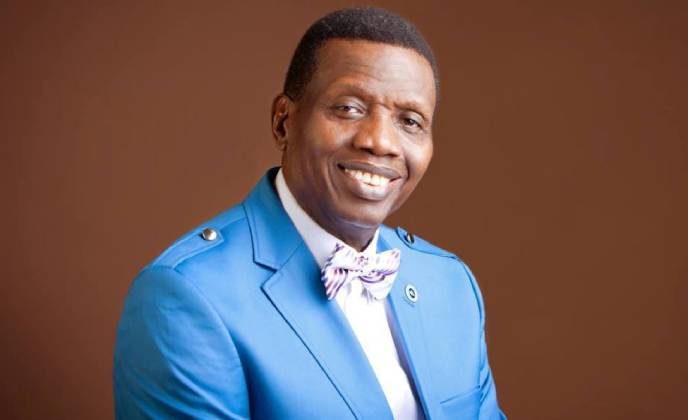
9 – Kumi Naidoo
Crime fighter
South Africa
Appointed as secretary general of Amnesty International in August 2018, Naidoo was a youth activist in apartheid South Africa and the first African head of Greenpeace. By making clear the link between environmental crimes and human rights abuses, Naidoo heralds a new era for Amnesty, widening its focus from political prisoners to indigenous peoples and everyone in between. “We need to redefine what it means to be a strong leader. Because strong leaders don’t bully activists. Yet that is exactly what is happening with a global crackdown on NGOs. We need to see less vitriol and more compassion from our leaders,” he explained on Twitter.
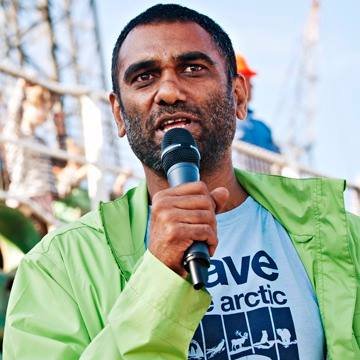
10 – Abiy Ahmed
Change agent
Ethiopia
Catapulted into office in April 2018 by the resignation of Prime Minister Hailemariam Desalegn, Abiy has made a huge splash at home and internationally. In 11 months, he has made peace with Eritrea, released 60,000 political prisoners, calmed ethnic tensions, signed multimillion-dollar infrastructure deals with China, started liberalising the economy, persuaded diaspora Ethiopians to contribute $2.4m to a trust fund, filled his cabinet with women, diffused a potential military coup by doing press-ups with soldiers… and the list goes on.
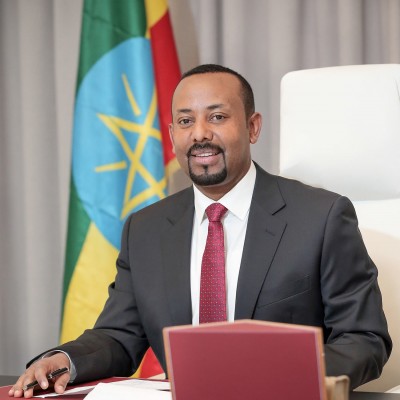
11 – Mark Bristow
Golden boy
South Africa
In September 2018, Bristow’s Randgold Resources signed a $6.5bn merger with Canada’s Barrick Gold Corp. When the opening bell rang on the New York Stock Exchange on 2 January, GOLD – the new stock for the merged company – was worth $23.75bn and Bristow was CEO of the world’s biggest gold miner by market cap. In March, Barrick Gold withdrew its $18bn bid for its biggest rival Newmont Mining, ending a hostile takeover effort that sought to make it the world’s largest gold miner. The two companies instead inked a deal to create a joint venture for their operations in Nevada, which will be operated and majority owned by Barrick Gold.
12 – Strive Masiyiwa
The connector
Zimbabwe
If Masiyiwa stands out as a Zimbabwean success story – he is the country’s first billionaire and now worth $2.3bn – today it is his philanthropy that matters. Through his Higherlife Foundation, he has provided scholarships for more than 100,000 young Africans; funded education, health and agriculture initiatives; and mentors on Facebook. Now he has entered the third phase: as thought leader he is on boards including the Africa Progress Panel, The Rockefeller Foundation and the Alliance for a Green Revolution in Africa.
13 – Adebayo Ogunlesi
Plane enthusiast
Nigeria
A lawyer and banker, Ogunlesi formed the private equity firm Global Infrastructure Partners (GIP) in 2006 and earned the nickname “the man who bought Gatwick Airport”. Ogunlesi, a quiet billionaire, has still not been able to keep out of the headlines – first by being part of Donald Trump’s ill-fated Strategic and Policy Forum, which disbanded after Twitter sackings in 2017, and second by luring World Bank president Jim Yong Kim to summarily leave his job and join GIP as vice-chairman in February. Insiders say Ogunlesi made Jim an offer he couldn’t refuse.
14 – Abdel Fattah al-Sisi
Sitting pretty
Egypt
15 – Naguib Sawiris
Opinionated investor
Egypt
After the Arab Spring the Egyptian telecoms billionaire founded the Free Egyptians Party, promoting a liberal, secular agenda. He got sidelined in politics and now mainly uses TV interviews as a soapbox – recently declaring that Trump was right over China, and that he was ready to invest in Venezuela as soon as President Nicolás Maduro was gone. People listen when Sawiris talks, as his capacity to invest can help a country’s fortunes: he says no to Saudi Arabia, but may put $300m into the Italian economy. On 25 February his investment bank, Beltone Financial, was allowed to resume trading on the Egyptian bourse after being suspended over irregularities in an IPO.
16 – Cyril Ramaphosa
Mountain climber
South Africa
A lot more influential than he was a year ago – when he had just taken on an ailing South Africa and the controversial cabinet of his predecessor, Jacob Zuma, which was mired in corruption – Ramaphosa has doggedly worked at untangling the country’s political and economic problems. He explained the situation when launching the African National Congress’ (ANC) 2019 election manifesto: “After a period of doubt and uncertainty, we have arrived at a moment of hope and renewal”. At 60%, his approval rating is higher than that of the ANC itself. His victory in the May presidential elections has also raised his profile on the global stage. South Africa has significantly more clout than its continental peers on the global diplomatic scene: it is the only African country in the G20 and became a non-permanent member of the UN Security Council for 2019-2020. Ramaphosa will further widen his sphere internationally when he becomes the chair of the African Union in 2020.
17 – Iyinoluwa ‘E’ Aboyeji
‘E’ for excellence
Nigeria
Aboyeji gave his first TED-talk when he was still a teenager and changes jobs so often his LinkedIn profile simply reads ‘Entrepreneur in the Public Interest’. Everything he does is designed to maximise the talent and potential of African youth. In two years, Andela grew from nothing to a network of more than 1,000 software engineers; payment platform Flutterwave processes more than $2bn a year. Aboyeji’s new thing, as of November 2018, is Street Capital, connecting global investors and philanthropists with “missionary entrepreneurs” in Africa to empower them and the next generation after that.
18 – Wizkid
Starboy
Nigeria
He and Davido (#7) are Nigeria’s two biggest musical megastars, but unlike his former rival – now friend – who comes from one of Nigeria’s wealthiest business families, Wizkid (alias Ayodeji Ibrahim Balogun) was a street-style hustler from Ojuelegba before becoming the original ‘Starboy’. These days he charges around $12m to appear in concert; signs up rising stars to his label, Starboy Entertainment; and, of course, went platinum with his collaboration with Drake.
19 – Denis Mukwege
Nobel cause
DRC
The renowned surgeon, who has devoted his life to helping the victims of sexual assault in the DRC, spoke out to the United Nations in 2012 and was later a victim of an assassination attempt. Co-winner of the Nobel Peace Prize in 2018, he has used this recognition to hold governments and international organisations to account for not doing enough to stop rape being used as a strategy of war. “All [the Nobel Prize]’s importance will be in its capacity to change the situation of victims in conflict zones.”
20 – Winnie Byanyima
Rising to a challenge
Uganda
Amidst a storm of scandals affecting the aid sector, Byanyima – who is married to Ugandan oppositionist Kizza Besigye – kept a firm hand on the tiller from the new headquarters in Nairobi, but 2019 will be another tough year for Oxfam. Byanyima also serves on numerous global advisory bodies, including the World Bank’s Advisory Council on Gender and Development. In 2016, when asked if she would ever stand for president in Uganda, she told the Forum for Women in Democracy: “If one day there is an opportunity and a team that shares my vision and wants me to lead it, I will rise.” With the popular movement around Bobi Wine whipping the population up to fever pitch, Byanyima could offer a real policy platform for the opposition.
Tech activist Okolloh founded Mzalendo (for tracking representatives in the Kenyan parliament) and Ushahidi (for crowdsourcing crisis information) before working for Google and then joining impact investor Omidyar Network. Luminate, the new philanthropic entity formed out of Omidyar’s Governance & Citizen Engagement initiative, is the ideal place to pool her exceptional skills.
Bill payer
Nigeria
In the headlong sprint to become the African fintech giant that goes global, Paga is some way behind Kenya’s M-Pesa – partly because of the latter’s head start and its telecoms company owner. The terrain is different, too, with traditional banks in Nigeria putting up a bigger fight by investing in their own mobile-payment platforms, which already makes Paga’s growth there impressive. Licensed in 2011, it quickly went from a mobile-money operator to a full-blown payments system including e-commerce solutions. The gap between them may close if Paga co-founder Oviosu gets his way; another $10m in the bank in 2018 is being used to fund expansion to Ethiopia, Mexico and the Philippines. Nearly $4bn in payments have already been crunched in Nigeria. He will have to be quick in Ethiopia, however, as he will come face to face with… M-Pesa.
Word to the wise
Egypt
Son of an Egyptian diplomat, US-based El-Erian has carved out a niche as one of the most influential economists of the post-global-financial-crisis era. While at PIMCO, the world’s largest bond-trading specialist, he came up with the concept of the ‘New Normal’ which went viral. His investment guide to the ‘age of global economic change’, When Markets Collide, was a New York Times bestseller, as was The Only Game in Town. He now serves as chief economic adviser to the board at Allianz, PIMCO’s parent company, among a plethora of other engagements.
47 – Kamel Daoud
Acid pen
Algeria
By writing Meursault as a counterpoint to French literary icon Albert Camus’s L’Étranger, Daoud struck deep at the rotten ties that join France and Algeria. A writer, editor and journalist, he has helped bridge the generations, from the old guard to the angry youth, and has made many enemies by his unsparing positions on Islamists and politicians. An imam who passed a fatwa on him in December 2014 was perhaps surprised to see the pushback; Daoud got him jailed for six months.
48 – Kola Masha
King of yield
Nigeria
Having worked as chief of staff to the minister of agriculture, Kola Masha is acutely aware of the broad challenges faced by Nigeria’s smallholder farmers, the backbone of the country that is often languishing in feudal levels of productivity. His company, Babban Gona, aggregates farmers into groups, gives them cheap seeds and fertiliser, and plugs them into markets. It is a bottom-up approach to national wealth with results that are bearing fruit. Babban Gona had worked with some 20,000 farmers by the middle of 2018, with its long-term goal of improving the performance of 1 million people. And Masha is no stranger to the sector. His other company Doreo Partners is an impact investment firm in agriculture. And his work has now been recognised by the Skoll Foundation award for social entrepreneurship. He is encouraging the government to look to examples like Brazil to see how to get more capital and better technology to smallholder farmers.
49 – Akinwumi Adesina
Green gold
Nigeria
As president of the AfDB, Adesina has thrown his passion and weight into agriculture. His vision is that, as the continent’s number one employer, the sector can solve the jobs and migration crisis. Fixing the bottom of the pyramid requires the financing to match: Adesina is in a race to get the soft-loan wing of the Bank replenished this year.
50 – Danai Gurira
Cutting edge
Zimbabwe/US
When Gurira isn’t destroying the enemies of the Kingdom of Wakanda as Okoye in the film Black Panther, Marvel-adapted hit or chopping people up with her katana blades as Michonne in The Walking Dead, she is crushing the red carpet at the Oscars ceremony. Her playwriting is acclaimed too: Eclipsed won prizes in 2016, while Letitia Wright starred in The Convert. In December 2018, Gurira became a UN Women Goodwill Ambassador. Her project Almasi Collaborative Arts builds ties between artists in the US and Africa.
51 – Ngugi wa Thiong’o
Voice master
Kenya
A life without compromise has cost Ngugi; imprisoned, forced to flee Kenya after writing and putting on a play that disturbed the powers that be – at that time, President Daniel Arap Moi. Championing his native tongue Gikuyu rather than write in colonial English, he has campaigned to strengthen writing in various African languages over the course of his career: “’To starve or kill a language is to starve and kill a people’s memory bank,” he said. And if this seems abstract, consider that Africa’s nations are colonial fictions; Africa’s economies will not be fixed before her politics are consolidated and native languages can be building blocks of that consolidation.
52 – Sauti Sol
Groove riders
Kenya
The exceptional afro-pop sensations from Nairobi are politically conscious, laid-back and on point. Like any band scraping a living in the era of skinflint streaming platforms, Sauti Sol are on the road a lot, headlining at the Lake of Stars festival in Malawi in September 2018, and at various US festivals. And they are award scoopers, too, picking up best African group at the All Africa Music Awards, the MTV Africa Music Awards and the Soundcity MVP Awards. But their lasting influence will be their Sol Generation Records, a label the band are using to launch new talents into the East African music stratosphere.
53 – Shamila Batohi
Jail filler
South Africa
What a time to get the top job: the National Prosecuting Authority had been manned by Shaun Abrahams, whose critics believe was close to corrupt networks around Jacob Zuma. Now, as the first woman to get the post, Batohi has an opportunity to go after the dozens of individuals who dragged South Africa’s proud institutions into the mire. She is no stranger to the task, having already served as director of public prosecutions in KwaZulu-Natal from 2002-2009 – and in the 1990s was asked by President Nelson Mandela to investigate hit squads within the police.
54 – Mona Eltahawy
Sword and shield
Egypt
A courageous activist, journalist and writer, Eltahawy speaks for those who lack a voice across the Middle East and beyond. Her 2015 book Headscarves and Hymens: Why the Middle East Needs a Sexual Revolution tried to break through the wall of silence that surrounds the sexual violence women in the region deal with on a daily basis. Putting her finger on the hyper-conservative Saudi interpretations of Islam, the headscarf is for her the symbol of oppression, and the hymen the strange guarantor of virginity for layers of male family and religious bureaucracy. Last year, she launched the #MosqueMeToo social media campaign to ensure that the Middle East and North Africa is not spared from the benefits of the #MeToo movement.
Money magnet
Nigeria
Creating Zenith Bank in a period of economic and political instability, Ovia has guided the institution through choppy waters. But he has retained his belief in the Nigerian economy. Speaking at the launch of a new book, he explained how he started the bank in 1990 with $4m: “We now have a total asset base of $16bn. If you look at the arithmetic, there has been over 1,000% growth. You can’t get that anywhere, even in the best economies in the world.”
56 – Pravin Gordhan
Bomb proof
South Africa
The former pharmacist turned activist turned tax authority chief turned finance minister multiple times is a testament to the cadre of personalities moulded in the fires of apartheid South Africa. The group Gordhan created at the South African Revenue Service was the only one that pushed back hard against corruption at the height of the Zuma era, as the South African judicial, police and security forces were slowly gutted or hamstrung. At 69, he has put a desire for a quieter and more relaxed life on the back burner to clean up South Africa’s troubled parastatals – like electricity utility Eskom and South African Airways – as the minister for public enterprises.
57 – T.B. Joshua
Prophesy and power
Nigeria
Joshua has a huge following across the continent, but especially in his home country. Though he only founded The Synagogue, Church of All Nations in Lagos in 2006, it has expanded rapidly, and the faithful flock there from many African countries for healing and counsel. Joshua is not always popular – the government of Cameroon warned its citizens about attending his church in 2010. But it is his influence with members of the continent’s celebrity and political elite that bumps him up the list.
58 – Albert Yuma
Diamond geezer
DRC
As a key part of former president Joseph Kabila’s inner team, Yuma controls the regime’s access to the DRC’s mineral wealth as chairman of Gécamines. The state-owned mining company – one of the continent’s largest – controls strategic reserves of the minerals of our electric future: copper and cobalt. Yuma is central to ongoing efforts by the Congolese to get a bigger slice of royalties from mining companies. Yuma’s name was also on a shortlist of candidates to become prime minister in the new government of President Felix Tshisekedi.
59 – Moussa Faki Mahamat
Top diplomat
Chad
Herding cats may suddenly seem a more attractive career path for the African Union Commission head. The current job for Chad’s former prime minister entails corralling Africa’s fractious presidents into a unified position on difficult topics such as the recent elections in the DRC, the continental free trade zone and big internal AU reforms. While the year did not start well – with the AU speaking loudly on the DRC election before retreating into silence – plenty of challenges await: Sudan, Libya and Central African Republic will all clamour for the AU to act.
60 – Julius Malema
Agent of change
South Africa
The controversial leftist politician is the leader of the Economic Freedom Fighters (EFF), a political party he launched in 2013 after his heavily publicised breakaway from the ruling African National Congress (ANC). A year after, the EFF won 25 seats in the 2014 general elections, securing more than 1.1m votes, and has since played an important role of kingmaker in the Johannesburg, Nelson Mandela Bay and Tshwane councils. As Malema’s popularity keeps rising, the EFF is tipped to make inroads into the electorate when South Africa goes to the polls in May.
Contemporary questioner
Ghana/US
Engaging with ideas of race and identity, the New York University-based thinker is tackling questions of a global nature in times when nativist forces are questioning the global infrastructure of the post-Second World War period. He argues that local attachment and cosmopolitanism can be reconciled, saying in a recent Foreign Affairs article: “Forgetting that we are all citizens of the world – a small, warming, intensely vulnerable world – would be a reckless relaxation of vigilance.”
Public intellectual
Cameroon
The South Africa-based Cameroonian academic is a revered voice across the continent, and not only influential in academia, but also in other public bodies. His ideas on postcolonialism, gathered in a collection of critical essays continue to shape the thinking on democracy. He explained: “Postcolonial thinking stresses humanity-in-the-making, the humanity that will emerge once the colonial figures of the inhuman and of racial difference have been swept away.”
63 – Edward Enninful
Voguing!
Ghana
The formerly white bastion of British Vogue has been shaken up by Enninful, who took over the coveted editor’s chair in April 2017. A model at 16 and fashion director of the magazine i-D at 18, the Ghana-born influencer thrust diversity into the spotlight back in 2008 when he organised the “Black Issue” of Vogue Italia to combat the “white-out that dominates the catwalks and magazines” (the magazine sold out and had to print an extra 40,000 copies). He is pushing for much more empathy in an industry that is not well known for that skill. The Queen of England awarded him an OBE in 2016; the Queen of New York, Anna Wintour, may favour him as her successor, if what the rumour mill is saying turns out to be true.
Adding it up
Cameroon
Armed with a wealth of experience in delivering development results for Africa, Songwe has been working to shake up institutions and buttress economic growth, first as the regional director of the International Finance Corporation covering West and Central Africa and now in her current position as executive secretary of the United Nations Economic Commission for Africa. A respected voice on development and economic issues in Africa, the Cameroonian economist and former World Bank director has certainly earned her stripes.
65 – Louise Mushikiwabo
Diplomat extraordinaire
Rwanda
Securing the support of both France and the African Union in her bid to lead the 84-member Organisation Internationale de la Francophonie in October last year was a remarkable achievement for Mushikiwabo, who had to face off against Québécois Canadian Michaëlle Jean, the incumbent secretary general at the time, who was seeking re-election. Formerly Rwanda’s Foreign Affairs Minister, the diplomat-cum-gender advocate is at the top echelons of the Rwandan government and is a well-known member of President Kagame’s inner circle.
66 – James Mworia
Meteoric rise
Kenya
Not many people rise from intern to CEO in seven years but such is the atypical career path of Mworia. At age 30, the multiple- award-winning lawyer and businessman was appointed CEO of Centum Investments, the largest publicly-traded private capital firm in East Africa, and has since restructured the company into a powerful investor in the East African economy. In his first six years as CEO, Centum’s asset base increased exponentially, from KSh6bn ($69m) to close to KSh30bn.
67 – Akwaeke Emezi
Poetry in emotion
Nigeria/Malaysia
Emezi’s highly acclaimed début autobiographical novel, Freshwater, has been hailed as “one of the decade’s most intriguing works of fiction”. The novel which forces readers to confront their views on issues such as mental illness and mysticism, tells the coming-of-age story of Ada, and her struggle with several inner voices in a multiple self. The Igbo and Tamil writer, who identifies as a “nonbinary trans and plural person”, is set to have an exciting year in 2019, with the publication of two new novels; a second adult novel The Death of Vivek Oji and a children’s book, Pet.
68 – Mohammed Dewji
Youthful gains
Tanzania
It came as no surprise when Dewji’s kidnapping by armed gunmen in Tanzania’s economic capital made international headlines in October 2018. The 43-year old Tanzanian businessman and former politician is considered Africa’s youngest billionaire, with a net worth estimated at $1.9bn as of January 2019. Dewji, who was released unharmed a week later, is the owner of his father’s company MeTL Group, a conglomerate active in product manufacturing and logistics in 11 countries across Eastern, Southern and Central Africa.
69 – Tony Elumelu
Engaging entrepreneur
Nigeria
With a branch network that spreads across 20 African countries and three global financial centres, United Bank for Africa brings Elumelu insights into the growth potential of African markets. And his networking is truly inter- national – he brought the French President Emmanuel Macron to an event in Lagos in July 2018, and was at the heart of former president Obama’s PowerAfrica initiative. But alongside this top-down strategy of conquest, there is also a bottom-up approach. His foundation brings in promising young entrepreneurs for training and cash. If the next Uber happens under his watch, Elumelu will be plugged into the next generation of wealth creation.
70 – Tony Attah
Riding on
Nigeria
The CEO of Nigeria LNG (NLNG) is at the forefront of one of the most promising liquefied natural gas projects in Africa. The $7bn Train 7 project will ensure sustainable feed gas supply to NLNG’s six existing trains and the new Train 7 when completed, and is expected to boost foreign direct investment in the country. When he’s not focused on Train 7, Attah dedicates his efforts to eliminating gas flaring in Nigeria, with NLNG having helped reduce flaring from about 65% to 20%.
Black gold
Ghana
Adomakoh, a former banker at JPMorgan Chase, is helping Norwegian start-up Aker Energy to make it big. It is planning a potential IPO this year on the back of its drilling success at the Pecan field. He is also a director at Kagiso Tiso Holdings, a South Africa-based investment firm that has big ambitions, and owns South Africa’s Business Day newspaper.
95 – Clare Akamanzi
Building brand
Rwanda
African governments wanting to copy Rwanda’s success in attracting investment go straight to the government-run Rwanda Development Board. Akamanzi got the world talking last year when Rwanda signed a three-year sponsorship deal with Premier League side Arsenal. She is now working with Chinese e-commerce giant Alibaba to help Rwandan companies to access the Chinese market.
What African Nations Can Learn from Rwanda’s Growth as an Innovation Hub | TechCabal
Rwanda is fast turning into a preferred location for technology and innovation through a combination of visionary leadership and investment in infrastructure showing an example to other African…
Soft spoken soft power
Ethiopia
While reformist premier Ahmed Abiy has Ethiopia’s hard power tools, President Sahle-Work is known for her soft-power politics. At her October 2018 inuguration, she explained her goal simply: “If the changes currently being made in Ethiopia are led by both men and women, their momentum will lead to an Ethiopia free of religious, ethnic or gender discrimination.”
97 – Njideka Akunyili
Crosby Million-dollar marvel
Nigeria/US
A rising star on the art scene, Enugu-born artist Akunyili Crosby has grabbed the limelight for selling a painting last year for more than $3m. A late 2018 exhibition called ‘Counterparts’ highlighted her hybrid upbringing in Nigeria and later life in the United States. Her beautiful portraits bridge the gap between nostalgia for the present and living in the now.
98 – Bola Tinubu
Lagos legend
Nigeria
With President Muhammadu Buhari having stormed to re-election in February, governing All Progressives Congress godfather Tinubu is planning out his next chapter. Lagos, the commercial capital, is his bastion in the south-west. The Abuja rumour mill is already talking about the potential for Tinubu, 66, to run in 2023 when Buhari ends his second term. Young guns are pushing for younger people to get more involved in politics, but the old guard is putting up a fight.
Crude prospects
Angola
The oil industry veteran has been back in control of Angola’s economic engine room. With Saturnino in charge, state oil company Sonangol reported a turnover of $17.7bn in 2018. The powerful firm has stakes in other businesses, like telecoms operator UNITEL, giving Saturnino an oversized influence on the country’s growth trajectory. His new focus on marginal fields is boosting lagging production at a time when it is needed most.
100 – Bridgette Radebe
Mining might
South Africa
Radebe is one of South Africa’s bright lights in the mining sector and a deal-maker who opts to stay out of the spotlight. She also forms a power couple with her husband Jeff Radebe, who is energy minister in President Cyril Ramaphosa’s government. She took over as chair of the Black Business Council in August of last year and serves as the president of the South African Mining Development Association.

